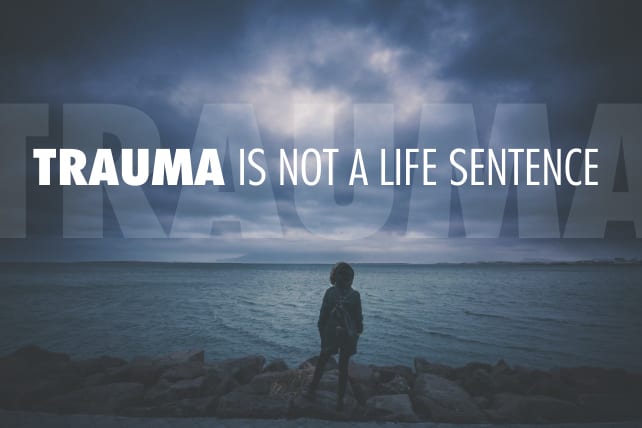Trauma is a certain kind of suffering—the kind that overwhelms one’s ability to cope. A whole class of wounds that cripple. A wound that buries itself deep in our consciousness. A tragedy too heavy for us. It happens in the past, but asserts itself over and over in the present.
Sex, too early.
Death, sudden.
Violence, familiar.
Betrayal, intimate.
Neglect, prolonged.
Violation, normalized.
Abuse, excused.
Pain, pervasive.
The trauma of combat and the trauma of abuse have similarities, but are not the same. We are focusing here on trauma related to abuse which, despite often happening so close to home, requires wartime metaphors to make sense of the tumult in our minds and hearts.
How do we faithfully navigate the overwhelming wounds and unpredictable triggers as believers?
Trauma for Christians
Some Christians have been trained to think that proper believers will not continue to experience traumatic symptoms for the rest of their lives because of Christ’s liberating work. On the other hand, hope and freedom are withheld by other well-meaning Christian counselors who insist on our “need to process”—the need to focus exclusively on our trauma, the need to speak at length about the pain, the need to obsess over it, the need to become preoccupied with our wounds—the notion that only in giving ourselves over to our trauma can we be free from it. One is cruel optimism; the other is an incurable diagnosis. Both are forms of false witness.
Both are things professionals say. Both things amateurs say. Depending on the circumstances, both remotely accurate, and both totally false. So how do we know what to believe about ourselves, and about God? The church seems to walk precariously in these situations between two serious trenches: 1) teaching that Christ insists on a certain kind and pace of recovery for the wounded, or 2) insisting that lifelong psychological trauma is so much a human experience that God cannot help much.
There are countless stories of churches blanching traumatic experiences and ongoing distress with reductionistic redemptive strategies, undercutting and offending the legitimacy and necessity of true lament. There are countless other stories of parents’ relationships with their children utterly destroyed—not to mention seeming relationships with God—because a counselor was overly fixated on the trauma. For these reasons, the term trauma is heard both too little and too often in our day—too little in addressing the profound wreckage of abuse, and too often as the controlling, decisive narrative in our story.












